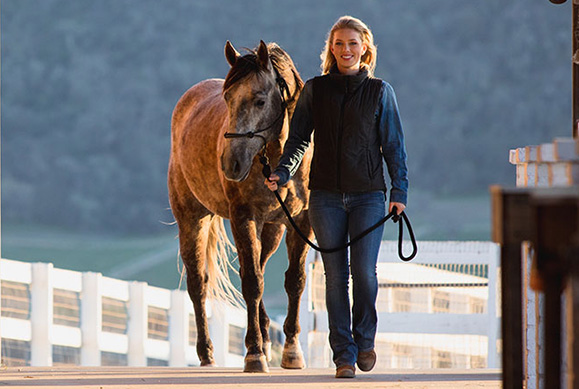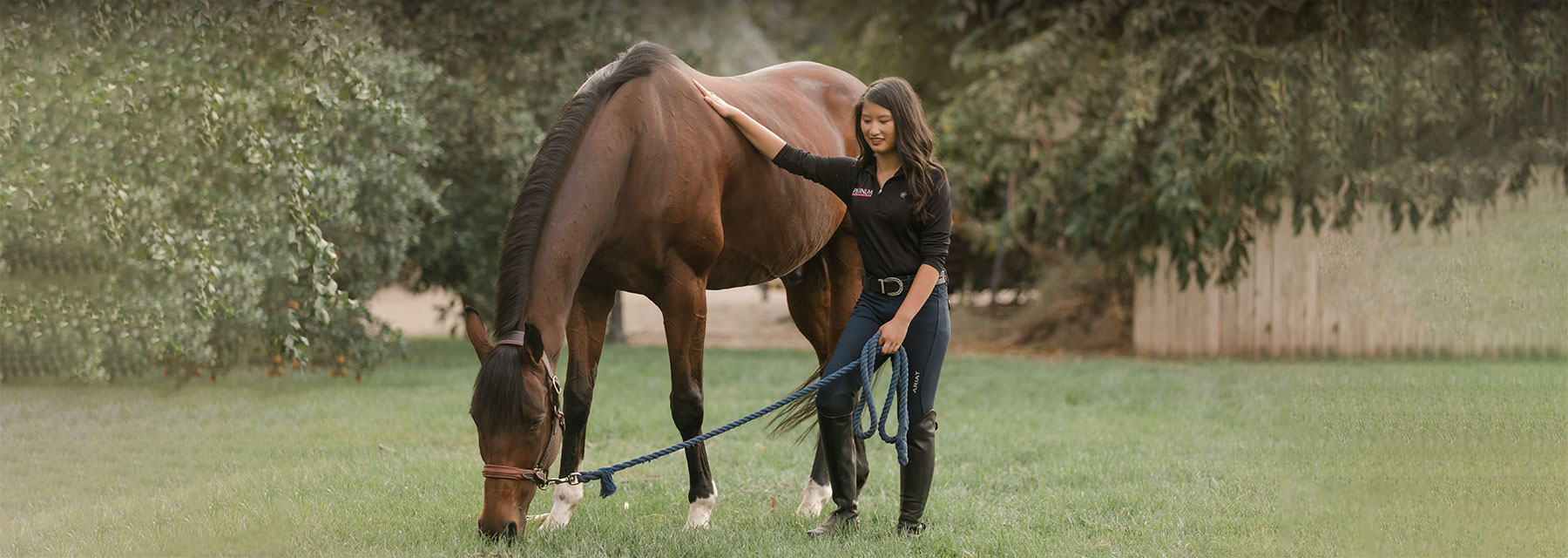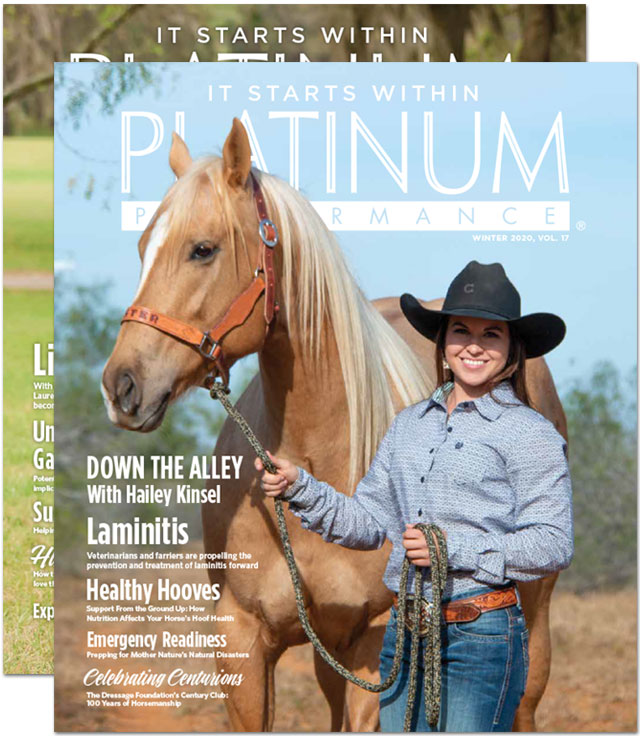Why will a horse not gain weight? Few things are more frustrating than feeding huge amounts of feed for what seems like an eternity with nothing to show for it. There are several common reasons why a horse will not hold his weight. The first ones to consider are dental condition and possible parasites. Age can certainly play a role since senior horses typically do not hold their weight as well as younger counterparts, or may require feeding adjustments as they age. Older horses tend to not digest and absorb their diet as efficiently as they once did. General digestive problems, such as ulcers or chronic loose stools, can interfere with weight gain. Low-level immune suppression or chronic disease can also interfere with a horse’s ability to maintain or gain weight. The metabolism of the individual horse may play a significant role in how a horse processes the feeds he’s given. Lastly, inadequate nutrition may be a reason that a horse cannot maintain body condition. It may be that the quality of feed needs to be improved, or that the overall diet is good but not given in enough quantity to meet the energy and protein needs of the horse’s age, life stage or activity level. Regardless of the reason, if a horse is suddenly losing weight or is chronically very difficult to put weight on, ask your veterinarian to provide a general health exam to rule out possible underlying causes.
Weight gain is a very slow process when done in a healthy way. Increasing a single body condition score is about 40-45 lbs of body weight. It should not be expected for a horse to gain a single body condition score in less than 60 days. The horse’s maintenance requirements need to be met first, then he must consume enough additional calories to facilitate weight gain. Every horse’s metabolism is unique, and how a horse puts on weight is dependent on the individual horse.
Hay and Pasture
Maximizing hay is the most important way to help a horse gain weight. Quality is paramount. High-quality hay should be fed free choice for weight gain. If the first cutting appears very stalky, it will most likely have too much indigestible fiber, and need to be switched to a leafier, higher quality and more digestible second or third cutting. Alfalfa can be very useful for weight gain. If a horse is maintained on grass hay, try adding alfalfa up to a 50/50 blend of grass to alfalfa. Alfalfa cubes or pellets may be soaked and used as well. It is very helpful if a horse is turned out on pasture since it is the most nutritious food for a horse. A horse can be given free choice hay while on pasture as well.

Other Feeds
Soaked beet pulp is a great choice for feeding horses the extra calories needed to gain weight. It is considered a “super fiber,” meaning it has a higher calorie content than hay (and some grains) but also has a fiber content similar to a forage, so it passes normally through the digestive tract. Unmolassed beet pulp is extremely low in sugar content and a very good addition to a diet for weight gain. Some higher fat options can also be very beneficial for weight gain. Rice bran is often used as a higher fat option to help with this. Many commercial feeds use a base of shredded beet pulp with rice bran for a high-fat and high-fiber option to help horses gain weight. To gain weight in a healthy way, it is best to opt for a high-fat/high-fiber option rather than to start pouring on pounds of grain. Grains, like oats and corn, have a higher calorie content, but they also have much higher omega-6 fatty acid and oxidation levels. Omega-6 fatty acids are naturally pro-inflammatory. Feeding a horse inflammatory feeds actually works against weight gain as the digestive system harbors this inflammation and does not digest and absorb as efficiently. Conversely, ground flaxseed, which is found in Platinum Performance® Equine, is an excellent source of omega-3 fatty acids that acts naturally in an anti-inflammatory manner and actually increases feed efficiency. Due to its high fat content, ground flaxseed has a high risk of rancidity unless it is processed appropriately and blended with antioxidants to act as a natural preservative.

Oils
Oils are great for weight gain as they contain essentially pure fat. Fat offers a much higher amount of calories per gram; approximately 2.25 times the amount of calories compared to the same unit of protein or carbohydrate. The natural diet of the horse is only about 3-6% total fat, however horses are very capable of digesting and metabolizing fats and oils efficiently. It is typically recommended to feed no more than 1-2 cups per day of any oil; usually horses find levels over that unpalatable. The omega-3 to omega-6 ratio comes into play for oils as well. While corn oil, soybean oil and rice bran oil contain much higher levels of pro-inflammatory omega-6 fatty acids, oils from flax, such as Platinum’s Healthy Weight, provide a quality source of anti-inflammatory calories.
Supplements
A good pre- and probiotic can be very helpful for weight gain.The good bacteria in probiotics like Platinum Balance® nurture the hindgut to provide the necessary means for processing feeds and getting the most out of what the horse eats. A supplement to balance the diet will most likely be necessary. A comprehensive supplement like Platinum Performance® Equine provides vitamins, macro and trace minerals, antioxidants and omega-3 fatty acids to help ensure that all the necessary nutrient requirements are being met.
It is extremely important to make any changes to the horse’s diet slowly, over about 7-10 days, to allow the digestive tract to acclimate. This is true for hay changes as well. All horses should have access to clean water and a plain, white salt block or loose salt. Free choice hay is always a good way to start a horse on a weight gain plan. Add a feeding when possible at night or for lunch. If possible, separate a thin horse so that he can eat by himself without competing for food. Weighing all feeds is a good way to know how much is being currently fed and will make it easier to adjust as needed. Weight gain is a slow process, and it is easy to get impatient. Weighing the horse on a scale or with a weight tape is a good way to gauge progress. Assess the horse’s weight once a month to note weight gain. If there is no change after one month, the diet may need to be adjusted again. After a veterinarian has checked the horse and diet changes have been made, one of the best things to do for weight gain is to have patience. Enjoy nourishing the horse and listening to the contented music of a horse munching on hay.

by Emily Smith, MS,
Platinum Performance®
You May Also Like
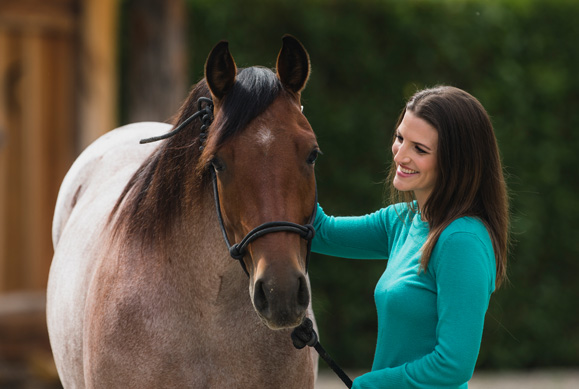
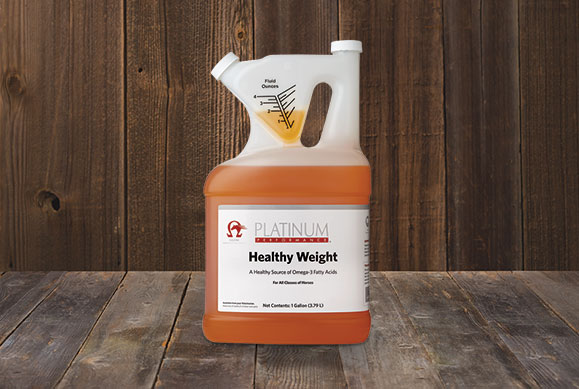
Which Oil is Healthy for Horses?
Omega-3 differences between flax, corn, canola, soybean and vegetable oil.
Read More about Oil for Horses